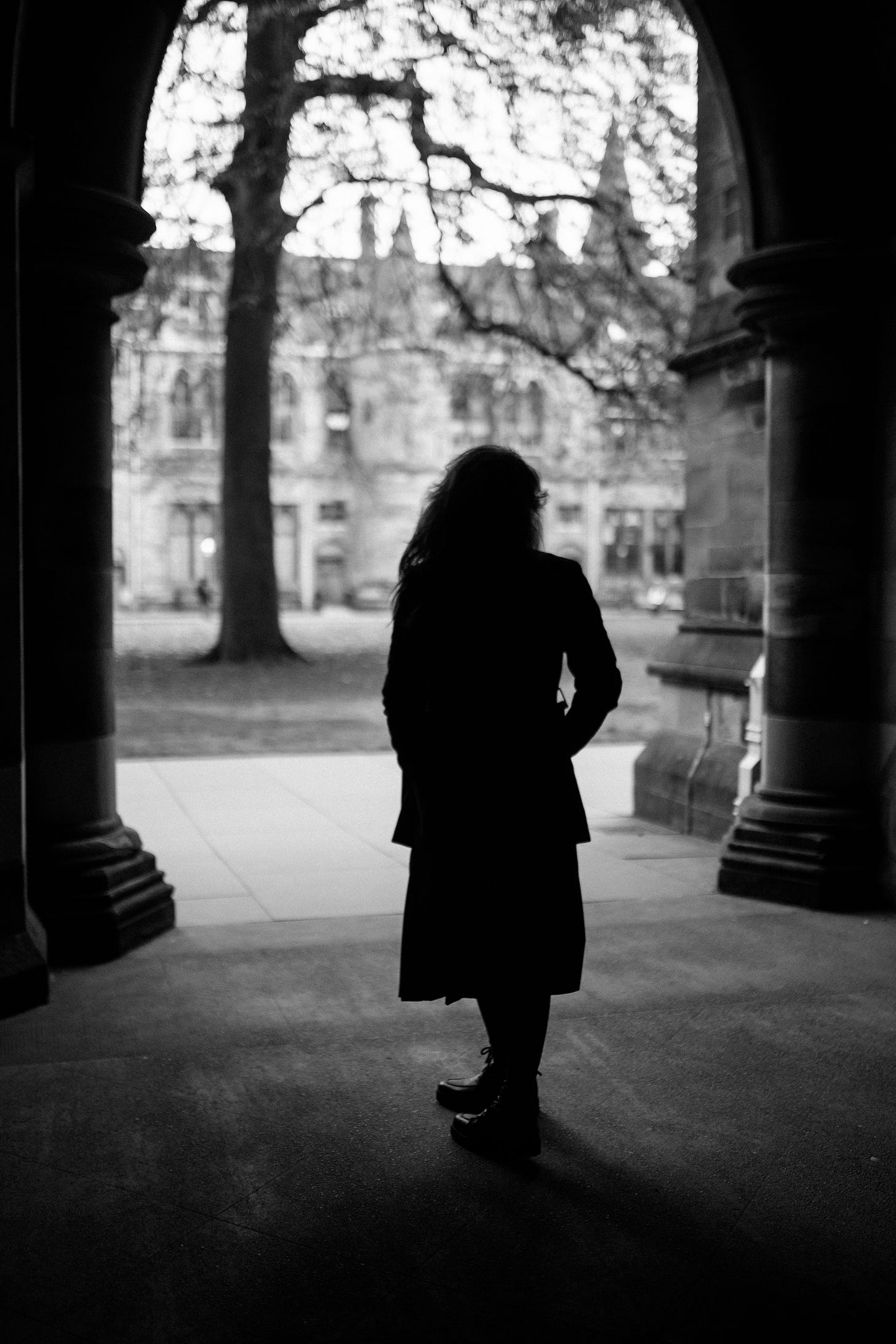
I stood in the Scottish Parliament two days ago celebrating a belated Pakistan Day. The large stately room echoed with familiar cadences of Urdu, the vibrant glitter of traditional dress, the warmth of people who welcomed me as one - and speeches full of optimistic platitudes about cross-cultural connections. For a moment, my research on Partition’s legacies felt blissfully inspired, as I shared my research with others, made new contacts with people who share my history.
The train journey back to Glasgow was quiet, contemplative. I scrolled through photos from the evening, still warming in the afterglow of belonging and recognition. Then my phone erupted with notifications: military exchange across the Line of Control. Airspace closures. Explosions. Diplomatic relations frozen.
By the time I reached my home, the very borders I'd been researching historically were being reinforced in real time.
The timing was almost literary in its cruel irony: just a week before, I'd received the terse rejection email for my PhD funding. "We regret to inform you that your application for funding has not been successful ..." No explanation. Why was research thats so relevant in the world today not worth funding? — the legacies of torn, separated cultures and the long-lasting effects of emotional displacement from homelands and the original kitchen. But let’s park that dialogue for now. I am learning to accept the rejection is not a reflection on my research or my hard work.
This week, what had felt like bureaucratic misfortune suddenly seemed prophetic. What I had hoped my funding would have helped with is my fieldwork in my ancestral village in India — one I have longed to visit for four decades. But it seems the funding body had inadvertently protected me from the chaos of rejected visas, or canceled flights and emergency evacuations. My research plans had collapsed before they could be shattered by geopolitics.
I stare at my PhD notes, my thesis novel mindmaps—scattered across my desk (and my floor) like the fragments of Partition stories I'm trying to piece together. The rose water sprinkler that one of my novel’s character finds as her family heirlooms from Kashmir, sits in my imagination, but the hands that once held it remain in places I cannot reach.
This is the reality of researching Partition narratives in 2025: the very borders I'm studying continue to harden, becoming less theoretical and more tangibly restrictive. India and Pakistan, again at loggerheads, their tensions reverberating through my academic plans and visa applications — but also realising the fact that this conflict is a repeat of a narrative that never shifts, that doesn’t allow regular people to just live peacefully, after decades of reverberations of trauma.
There's something unsettling about planning research on historical divisions only to have contemporary ones step in to redirect you. It makes me wonder about the cyclical nature of these tensions—how many research projects, family reunions, and business ventures have been interrupted by the same borders being drawn and redrawn over decades?
the ghost research
I feel a little lost now — researching the aftermath of Partition whilst knowing that I will be kept away from visiting the spaces that would have given my novel so much depth and feeling. The conflict situation brewing between Pakistan and India isn't just headlines for me—it's a research methodology being rewritten in real-time.
What does it mean to write about kitchen objects, memories, people being carried across borders when you yourself cannot cross over to reconnect with ancestral land? What authority do I have to speak of places I can now not visit?
Field work—the physical presence, the sitting with elders over chai, the handling of archival materials, walking through the lands of legacy — this has always been the gold standard of research. Now it feels like an impossibility.
I think of all the questions that will go unasked:
What did your grandmother bring when she fled Lucknow? How did she adapt her recipes with ingredients she could find? Did she ever speak of what was left behind?
The questions I will not be able to ask my family still in India: What did people in Azamgarh (where my Dadi was from) cook before Partition, why did you choose to stay in India and not come over to Pakistan?
These questions hover in lost space, much like the characters in my novel who stand between remembering and forgetting, between here and there. I now have to rethink, find more relevant angles to tell this story without losing its importance and it’s powerful message.
the inherited memory
My grandmother would have laughed at my academic distress. "Beta, you think borders are new?" I can hear her voice, crisp as the pleats in her sari. "We crossed them with children on our backs. You can manage with your fancy internet."
She'd be right, of course. The Partition generation navigated far worse than research complications. They reimagined entire lives, reconfigured identities, recreated home from nothing but memory and will.
What I've discovered in this forced pivot is the wealth of diasporic knowledge scattered across Britain and beyond—third and fourth generation voices carrying stories they themselves never lived but somehow embody. As well as all I can read about, relive, research through digital archives. I know that being back to the place my grandparent’s and parents were born would be magical but perhaps there's a certain appropriateness to researching fragmentation through a fragmented methodology.
The story of Partition was never linear; why should its study be?
I'm collecting pieces now—a recipe here, a memory there, an object described rather than held. Like the storyteller in my novel, I'm weaving what I can access into something that acknowledges its incompleteness while still reaching for truth.
The Kashmiri communities scattered across Britain carry their own fragmented inheritance. I’ve been told by some: "We grew up with stories of a homeland none of us have seen. Our Kashmir exists in family folklore, not geography."
What strikes me most in some of the diasporic conversations I’ve had is how differently Partition is remembered depending on where people landed. The ways memory adapts to new circumstances while preserving its essential character—like a recipe adjusted for ingredients available in a new country.
financial constraints as redirections
The funding rejection, I'm now realising, didn't just close one door—it opened several others. Without the resources to travel to the subcontinent, I've been forced to look closer to home, to see the diasporic communities around me not as substitutes for "real" fieldwork but as equally valid sources of knowledge.
There's a humbling lesson here about academic hierarchy and what we value as "authentic" research. Would I have given these British-based communities the same attention if my original plans had succeeded? Or would I have privileged the voices from "the homeland" as somehow more legitimate?
The financial constraint became a conceptual redirection. I'm now looking how I don’t just have to research Partition from the eyes of desi people but also a continually unfolding process of remembering and forgetting, adapting and preserving, and with it the diasporic voices—three and four generations removed—aren't peripheral to this story but central to it.
finding my field
As I watch the news each hour for updates on the situation, I'm struck by how my research and the world events are mirroring each other. I'm writing about the long echoes of Partition while in some ways living through its continuing reverberations.
The question I keep returning to is this: did the Partition generation imagine that seventy-eight years later, researchers would still struggle to move freely between these divided pieces of what was once whole? Did they know how enduring these lines would be?
Tonight, I'll make biryani the way my grandmother taught me, letting the fragrance remind me that some knowledge lives in our bones, waiting to be awakened even when we cannot return to its source. Dialogue between these two countries may be closed, but the borders between past and present remain permeable if we know how to cross them.





